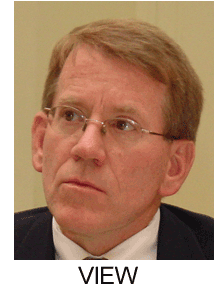 Investigations by New York state Attorney General Andrew Cuomo’s office sparked a scandal last spring surrounding the $85-billion-per-year student loan industry.
Investigations by New York state Attorney General Andrew Cuomo’s office sparked a scandal last spring surrounding the $85-billion-per-year student loan industry.
The investigation revealed that more than two dozen schools, most of them private institutions, received money and other favors from lenders in return for being placed on the preferred lender lists. As a result, potentially thousands of students were steered to these “preferred†lenders and got socked with higher interest rates than they needed to pay.
The investigation has led to settlements ordering 10 schools to reimburse students more than $3 million. Also, 26 schools nationwide have committed to Cuomo’s “Code of Conduct†that establishes a high ethical standard for the student loan industry. SUNY is among the schools making such a commitment, even though a spokesman for SUNY said the attorney general found no wrongdoing or illegal or deceptive practices among SUNY campuses.
The scandal shines a spotlight on college financial aid officials. But that spotlight reveals no blemishes on SUNY financial aid counselors represented by UUP, who work diligently to ensure that millions of students can earn a college degree.
“Most parents and students are not fully aware of all the financial aid possibilities out there,†said John View, director of financial aid at SUNY Environmental Science and Forestry in Syracuse. View is also UUP chapter president at ESF.
“Financial aid counselors are not out there to mislead students,†View said. “We steer them to reputable lenders that offer repayment incentives, and coach them on how to take advantage of benefits to pay off their loans at a lower interest rate — information they won’t get from a lender online.â€
SUNY financial aid officers have seen increased traffic in their offices, as the number of students seeking financial aid continues to rise. View said 82 percent of ESF students this year are receiving financial aid — but not enough are getting the monetary guidance they need.
“The number of students who have a financial background is limited because they haven’t been taught good financial literacy,†he said. To help, View’s office provides training to help students on money management issues.
View wants students to know the door for financial advice is always open.
Most financial aid officers don’t encourage private loans. But parents increasingly have their children take out private loans that make the student responsible for payment, View said.
“This is subjecting students to huge debt because they have to borrow more at a higher interest rate,†he said.
View said the student loan controversy has led to some positive results. First, parents and students are asking more questions and becoming better informed consumers.
“They’re less shy about asking why I recommend particular lenders,†he said.
Secondly, the emphasis on financial counseling and planning has increased, leading to a new appreciation for the profession.
“The role of a financial aid office has changed from simply processing loan applications to educating families,†View said.
Lastly, View believes the public will pay attention to the imbalance between loans and grants.
“Now we have an average of 30 percent grants and 70 percent loans. This clearly shows the need for the government to make more grant money available,†he said.
— Donald Feldstein

